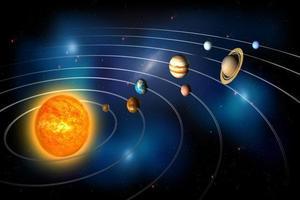13043745
UNIT 3.4 - DOMESTIC ELECTRICITY
Resumo de Recurso
| Questão | Responda |
| How much energy does a 100 W bulb use in 20 seconds? | Energy transferred (Joules) = power (Watts) x time (seconds) Energy transferred = 100 x 20 Energy transferred = 2,000 W |
| The same bulb is left on for 1 hour, how much energy does it use? | Energy transferred (Joules) = power (Watts) x time (seconds) Energy transferred = 100 x 60 x 60 Energy transferred = 36,000 W |
| What is the power of an electric fire that transfers 10,000 J of energy in 5 seconds? | Power (Watts) = energy (Joules) ÷ time (seconds) Power = 10,000 ÷ 5 Power = 2,000 W |
| A 1,500 W hair dryer is used for 5 hours in 1 week. How many units of electricity has it used and how much has it cost to use? (1 unit costs 9.4p) | Units used (kWh) = power (kW) x time (h) Units used = 1,5 x 6 = 9 units Therefore cost = 9 x 9.4 = 84.6p |
| A 2.2 kW dishwasher washes the dishes in 60 minutes. How many KWh of electricity has it used and much does it cost per wash? (1 unit costs 14p) | Units used (kWh) = power (kW) x time (h) Units used = 2.2 x1 = 2.2 units Therefore cost = 2.2 x 14 = 30.8p |
| An alternating current (a.c.) is one that continuously __________ direction. Mains electricity is an a.c. supply. The UK mains supply is about _____V and has a frequency of _____Hz. | An alternating current (a.c.) is one that continuously CHANGES direction. Mains electricity is an a.c. supply. The UK mains supply is about 230V and has a frequency of 50Hz. |
|
A direct current (d.c.) has a ____________ direction.
Cells and _________________
provide a d.c. power supply.
Image:
Cell (binary/octet-stream)
|
A direct current (d.c.) has a CONSTANT direction.
Cells and BATTERIES
provide a d.c. power supply.
Image:
Cell (binary/octet-stream)
|
|
The ______ in a fuse is very thin. If too large a ____________ flows due to a fault in
the device, the wire becomes hot and melts which breaks the ______________.
Image:
Fuse (binary/octet-stream)
|
The WIRE in a fuse is very thin. If too large a CURRENT flows due to a fault in
the device, the wire becomes hot and melts which breaks the CIRCUIT.
Image:
Fuse (binary/octet-stream)
|
| Circuit Breakers automatically break a circuit when they detect the current reaches dangerous levels. Give 2 advantages of circuit breakers over fuses. | Circuit breakers: - Work much faster than fuses do. - Can easily be re-set by a switch (unlike fuses) |
| Calculate the current used by an 850 W toaster running on 230V UK mains electricity. Which fuse would you choose to protect the toaster? Choose from a 3A, 5A and 13A fuse. | current (Amps) = power (Watts) ÷ voltage (volts) current = 850 ÷ 230 current = 3.7A Therefore a 5A fuse should be used to protect the toaster. |
| Two wires supply our homes with electricity. 1. The ___________ (brown), carries the current to the house at a _______ voltage. 2. The neutral (_______), completes the circuit by carrying the current ________ at low / zero voltage. | Two wires supply our homes with electricity. 1. The LIVE (brown), carries the current to the house at a HIGH voltage. 2. The neutral (BLUE), completes the circuit by carrying the current AWAY at low / zero voltage. |
| There is one more wire in the home: 3. __________ (yellow and green) – is a ____________ wire which can carry current safely into the __________ if a fault develops in a metal framed appliance. | There is one more wire in the home: 3. EARTH (yellow and green) – is a SAFETY wire which can carry current safely into the GROUND if a fault develops in a metal framed appliance. |
| Describe the advantages of using a ring circuit in a house. | The power sockets in a house are connected by means of a ring circuit or ring main. In a ring circuit the live, neutral and earth wires form a loop of cable going to all of the sockets in turn. A ring circuit connects all appliances together in parallel. This enables 230 volts to be delivered across each appliance and also means that they can all be used independently. |
Quer criar seus próprios Flashcards gratuitos com GoConqr? Saiba mais.

